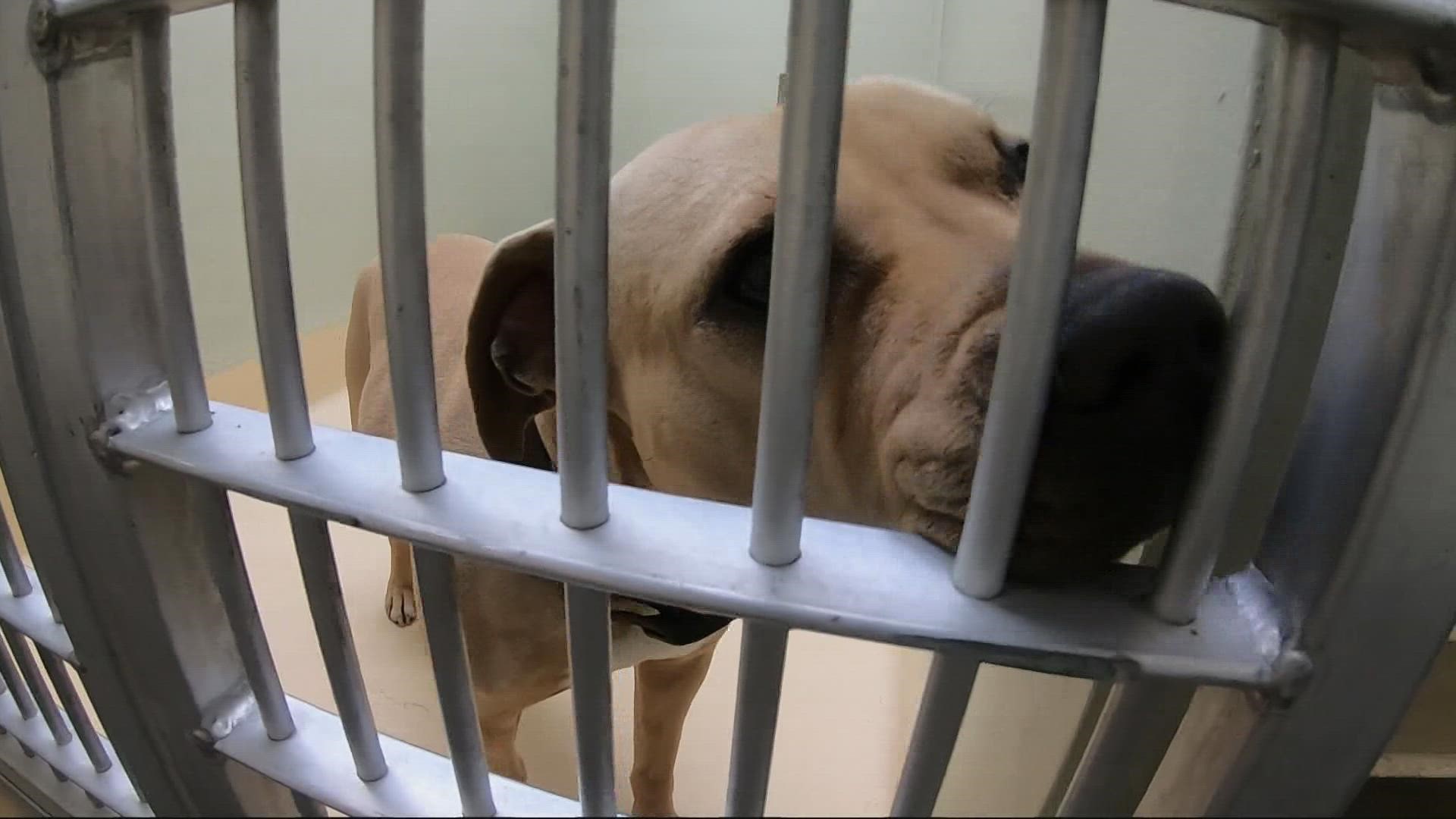WASHINGTON COUNTY, Ore — Animal euthanasia has become increasingly rare, with high adoption rates and greater awareness surrounding animal welfare. But only a decade or so ago, it was a relatively common response to pet overpopulation.
On Monday, crews dismantled a grim reminder of a different time: the incinerator at Bonnie Hays Animal Shelter, which was once used to cremate euthanized animals.
"Back in the day, incinerators were an integral part of animal shelters. Especially public animal shelters because there were so many unwanted animals," said Randy Covey manager of Washington County Animal Services. "We decommissioned this in 2019. We haven’t used it for almost three years now and it is time for it to go."
The incinerator's removal, he said, signals a big step toward improving animal welfare, with far fewer animals euthanized and many more finding forever homes. Around 2008, Washington County Animal Services was euthanizing 3,400 animals per year. That's compared to less than 100 euthanized animals in 2020, the last year the county had euthanasia statistics.
While euthanasia has remained low, adoption remain high despite the challenges of the COVID-19 pandemic. The Oregon Humane Society (OHS) moved to adoption by appointment only two years ago and will continue to adopt out animals in this way.
"Interest in adoptions was really high in 2020. We heard national stories about a surge in interest in animal adoption. People are home and wanted a companion animal," said Laura Klink with OHS.
Adoptions dipped slightly compared with pre-pandemic numbers, and recently, more animals have been headed to shelters across the state due to limited vet care. That means fewer animals spayed or neutered and as result, more puppies and kittens.
"There’s a little bit of a return to normalcy, but really, I think that the pandemic forced us to be really innovative and look at new ways to find homes for pets and continue to help our shelter partners, and we’re going to continue what has worked," she said.

